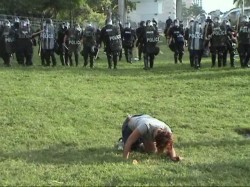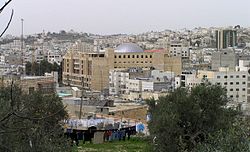 The United States is mounting a "diplomatic surge" to end the war in Afghanistan even as military pressure is forcing Taliban insurgents to consider whether to break with al Qaeda, Secretary of State Hillary Clinton said on Friday.
The United States is mounting a "diplomatic surge" to end the war in Afghanistan even as military pressure is forcing Taliban insurgents to consider whether to break with al Qaeda, Secretary of State Hillary Clinton said on Friday.
Clinton, in a speech on Afghanistan at the Asia Society, said the Taliban's only option was to split from al Qaeda, accept the Afghan constitution and join peaceful dialogue on the country's future. "They cannot wait us out. They cannot defeat us. And they cannot escape this choice," Clinton said in a speech that was broadcast live on the Internet.
U.S. Launches Diplomatic 'Surge' to End Afghan War
Key breast cancer 'driver' gene found
 Cancer experts have identified a gene which can cause a particularly aggressive form of breast cancer to develop. ZNF703 is the first "oncogene" to be discovered in five years.
Cancer experts have identified a gene which can cause a particularly aggressive form of breast cancer to develop. ZNF703 is the first "oncogene" to be discovered in five years.
It is overactive in around one in 12 breast cancers, and could account for up to 4,000 UK cases a year. Cancer Research UK, whose scientists carried out the work, said the gene was a "prime candidate" for the development of new breast cancer drugs.
Firefighter refused call to Giffords shooting
 A veteran firefighter refused to respond to last month's deadly shooting spree that left Rep. Gabrielle Giffords wounded because he had different political views than his colleagues and "did not want to be part of it," according to internal city memos.
A veteran firefighter refused to respond to last month's deadly shooting spree that left Rep. Gabrielle Giffords wounded because he had different political views than his colleagues and "did not want to be part of it," according to internal city memos.
Mark Ekstrum's insubordination may have delayed his unit's response because firefighters had to stop at another station to pick up a replacement for him, the Arizona Daily Star reported.
U.S. Vetoes Arab UN Bid to Halt Israel Settlements

The U.S., while “rejecting in the strongest terms the legitimacy of continued Israeli settlement activity,” voted against the measure out of concern for the impact on the future of Israeli-Palestinian peace talks, Ambassador Susan Rice said.
Bullying the Palestinians
 It appears that US dealings with the Palestinians have entered a new phase: Bullying.
It appears that US dealings with the Palestinians have entered a new phase: Bullying.
On Thursday, President Barack Obama telephoned Mahmoud Abbas, the Palestinian president, to urge him to block a UN Security Council resolution condemning settlements. Obama pressed very hard during the 50 minute call, so hard that Abbas felt constrained to agree to take Obama’s request to the PLO executive committee (which, not surprisingly, agreed that Abbas should not accede to Obama’s request).
But what a request it is!
Hackers group Anonymous link California company to alleged Chamber of Commerce plot
 An obscure cybersecurity firm from Sacramento has been swept up in a bizarre scandal involving an affiliated company and an alleged plot to discredit liberal critics of the U.S. Chamber of Commerce.
An obscure cybersecurity firm from Sacramento has been swept up in a bizarre scandal involving an affiliated company and an alleged plot to discredit liberal critics of the U.S. Chamber of Commerce.
As the controversy intensified, the Sacramento company abruptly withdrew from a high-profile cybersecurity convention being held this week at the Moscone Center in San Francisco. The conference ends today.
Betrayed! Tea Party Politicians Vote To Renew The Patriot Act As America Is Slowly Transformed Into A Big Brother Police State Worse Than George Orwell’s 1984
 America is rapidly turning into a horrible Big Brother police state and most of our politicians are fully supporting this transformation. In fact, the U.S. House of Representatives gave us quite a Valentine's Day gift the other day when it voted to once again extend provisions of the Patriot Act that allow for domestic surveillance of American citizens, wire tapping of American citizens and warrantless searches of the homes of American citizens.
America is rapidly turning into a horrible Big Brother police state and most of our politicians are fully supporting this transformation. In fact, the U.S. House of Representatives gave us quite a Valentine's Day gift the other day when it voted to once again extend provisions of the Patriot Act that allow for domestic surveillance of American citizens, wire tapping of American citizens and warrantless searches of the homes of American citizens.
3 Philly priests named in sex report are suspended
 The Philadelphia archdiocese has suspended three priests named as child molestation suspects in a scathing grand jury report issued last week and has pledged to reopen complaints made against 34 others still on the job.
The Philadelphia archdiocese has suspended three priests named as child molestation suspects in a scathing grand jury report issued last week and has pledged to reopen complaints made against 34 others still on the job.
Joseph Gallagher, Stephen Perzan and Joseph DiGregorio have been removed from ministry while their cases are reviewed.
Israeli students are learning how to annex Hebron

Education Minister Gideon Sa'ar's announcement that starting in the upcoming school year, his ministry will make student trips to the Tomb of the Patriarchs in Hebron part of a new curriculum is cause for serious concern. In his decision to bring schoolchildren to the heart of the most violent and problematic settlement in the territories, the education minister took a controversial political step - not a pedagogic one.
Page 673 of 1175



































